Product Overview
Metformin Synergy Capsules combine four pharmacologically distinct agents-metformin HCl, L-leucine, methylcobalamin (the neurologically active co-enzyme form of vitamin B₁₂), and micro-dose sildenafil-in a single oral dosage designed for individualized, physician-directed metabolic optimization. Metformin remains first-line therapy for insulin-resistant states because it decreases hepatic gluconeogenesis, increases peripheral glucose utilization, and modestly lowers intestinal glucose absorption through adenosine-monophosphate-activated protein kinase (AMPK)-dependent and -independent pathways. L-leucine, an essential branched-chain amino acid, is included at nutraceutical rather than macronutrient levels to engage mammalian-target-of-rapamycin complex 1 (mTORC1) and S6 kinase signaling, thereby supporting skeletal-muscle protein synthesis, modulating lipid partitioning, and counterbalancing the catabolic tone that can accompany caloric restriction or metformin-induced appetite reduction.
Methylcobalamin replenishes vitamin B₁₂ pools frequently depleted by chronic biguanide exposure, supporting one-carbon transfer reactions, myelin integrity, and erythropoiesis. The ultra-low dose (0.7 mg) of sildenafil provides tonic phosphodiesterase-5 (PDE5) inhibition sufficient to enhance endothelial nitric-oxide signaling and microvascular perfusion without producing the pronounced systemic vasodilation seen at erectile-dysfunction doses; this mechanism may synergize with metformin’s AMPK activation to improve insulin-mediated glucose disposal. The compounded formulation is dispensed exclusively by a 503A pharmacy, ensuring preparation pursuant to patient-specific prescriptions and in compliance with U.S. Pharmacopeia chapter <795>. No component of the capsule is approved by the U.S. Food and Drug Administration for combined use, and prescribers must weigh potential benefits against additive risks when employing the preparation in complex metabolic or cardiometabolic disorders such as type 2 diabetes, polycystic ovary syndrome, sarcopenic obesity, or early endothelial dysfunction.[1]
Each Metformin Synergy Capsule contains metformin HCl 250 mg, L-leucine 250 mg, methylcobalamin 0.2 mg, and sildenafil 0.7 mg in a vegetable-derived gelatin substitute. Adult initiation often begins with one capsule orally once daily with the evening meal for seven days; if tolerated and glycemic objectives are unmet, escalation to twice-daily administration with morning and evening meals may follow. The maximum studied exposure in compounded practice is three capsules daily (total metformin 750 mg), significantly below conventional monotherapy ceilings and therefore unlikely to provoke dose-related lactic acidosis in patients with preserved renal function.
Capsules must be swallowed intact-crushing or opening alters release kinetics and sildenafil distribution. Because inter-individual variability in vitamin B₁₂ absorption exists, clinicians may monitor serum methylmalonic acid or holo-transcobalamin to refine dosing intervals. In elderly or renal-compromised patients (eGFR 30-45 mL/min/1.73 m²), maintain once-daily dosing with quarterly renal-function review. Avoid administration within 48 hours of iodinated-contrast imaging. Adjust concurrent oral hypoglycemic agents to reduce hypoglycemia risk; sulfonylurea or insulin doses may require 10-20 % reduction on initiation.[7]
Metformin’s primary molecular target is complex I of the mitochondrial respiratory chain; inhibition increases the cellular AMP/ATP ratio, secondarily activating AMPK, which orchestrates downstream suppression of gluconeogenic gene expression (e.g., PEPCK, G6Pase), enhancement of GLUT4 translocation, and attenuation of lipogenesis in hepatocytes and adipocytes. L-leucine is sensed by the cytosolic leucine-binding protein Sestrin-2; its occupancy releases Sestrin-2 from GATOR2, thereby permitting mTORC1 recruitment to the lysosomal surface and initiating protein-synthetic translation via phosphorylation of 4E-binding protein 1 and p70S6 kinase.
Methylcobalamin serves as a co-factor for methionine synthase, facilitating remethylation of homocysteine to methionine and supporting S-adenosyl-methionine-dependent DNA and protein methylation important for pancreatic β-cell function and neurological integrity. Sildenafil’s PDE5 inhibition prevents cGMP degradation, promoting protein kinase G activation, endothelial nitric-oxide synthase phosphorylation, vasodilation, and improved skeletal-muscle microperfusion, which together may augment insulin and nutrient delivery.
In aggregate, the four agents address complementary pathophysiologic nodes: hepatic glucose overproduction, peripheral insulin resistance, vitamin B₁₂ depletion, sarcopenic tendencies, endothelial dysfunction, and microvascular insufficiency.
The formulation’s rationale thus rests on convergent modulation of energy metabolism, vascular tone, and neurometabolic co-factor sufficiency, with the goal of enhancing glycemic control, muscle anabolism, and cardiometabolic resilience while minimizing monotherapy limitations.[2]
Use is absolutely contraindicated in patients with estimated glomerular filtration rate < 30 mL/min/1.73 m² or progressive renal decline because metformin accumulation can precipitate lactic acidosis, a rare but potentially fatal event characterized by anion-gap metabolic acidosis, hyperlactatemia, and hemodynamic instability. Severe hepatic impairment, acute or unstable congestive heart failure, active alcohol misuse, or conditions associated with tissue hypoxia (e.g., septicemia, postoperative state) similarly elevate lactic-acidosis risk and preclude administration.
Leucine supplementation should be avoided in individuals with maple-syrup-urine disease or other rare defects of branched-chain-amino-acid metabolism. Clinically significant vitamin B₁₂ hypersensitivity is uncommon but represents a contraindication. Sildenafil must not be used in patients taking any form of organic nitrate, soluble guanylate-cyclase stimulator, or riociguat because synergistic cGMP accumulation can precipitate profound hypotension; additional exclusion criteria include recent myocardial infarction or stroke, uncontrolled arrhythmias, severe hypotension (systolic < 90 mmHg), hereditary retinal disorders such as retinitis pigmentosa, and severe hepatic dysfunction.
Concomitant use in patients with retinopathy of prematurity or proliferative diabetic retinopathy warrants caution given theoretical hemodynamic effects on retinal circulation. Each capsule should be withheld in scenarios of acute dehydration, iodinated-contrast exposure, or surgery necessitating peri-operative renal-function monitoring.[3]
Cationic medications excreted via the proximal renal-tubular organic-cation transporter 1-including ranolazine, dolutegravir, cimetidine, and vandetanib-may elevate metformin plasma concentrations and potentiate gastrointestinal or metabolic toxicity. Carbonic-anhydrase inhibitors (topiramate, acetazolamide) increase bicarbonate loss and can compound metformin-associated acidosis. Chronic proton-pump inhibitor or H₂-receptor antagonist therapy may exacerbate metformin-induced vitamin B₁₂ malabsorption, warranting periodic cobalamin surveillance. Leucine’s mTORC1 activation could theoretically attenuate the caloric-restriction mimetic effect of metformin; therefore, dosing schedules that separate leucine intake from fasting-mimetic periods may be preferable.
Methylcobalamin shows negligible pharmacokinetic interaction but can mask hematological manifestations of folate deficiency; clinicians should evaluate folate status when macrocytosis persists. Sildenafil possesses additive blood-pressure-lowering potential with α-blockers, calcium-channel blockers, and antihypertensives; initiating therapy at bedtime and titrating cautiously mitigates syncope risk. Strong cytochrome P450 3A4 inhibitors (ketoconazole, clarithromycin) can raise sildenafil exposure; in contrast, rifampin and other inducers reduce efficacy. Grapefruit-containing supplements may alter PDE5-inhibitor metabolism and should be avoided. Co-administration with other AMPK activators (berberine, AICAR) or nitric-oxide donors (L-arginine) requires vigilance for additive effects on glucose and vascular tone.[4]
Gastrointestinal intolerance is the most prevalent adverse effect, manifesting as early satiety, abdominal cramping, bloating, or diarrhea; slow titration and administration with meals ameliorate symptoms for most patients. Metallic taste and mild weight loss may accompany metformin initiation. Leucine at physiologic doses is generally well tolerated, although excessive intake can cause nausea, hyperammonemia, or competition with isoleucine and valine uptake, occasionally provoking fatigue or mood alteration in sensitive individuals.
Methylcobalamin is water-soluble; adverse reactions are rare but may include mild dermatologic eruptions, pruritus, headache, or, uncommonly, hypokalemia during rapid hematopoietic rebound. Sildenafil at sub-milligram levels rarely produces classic PDE5-related flushing or visual bluish tinge; however, dose-dependent adverse events remain possible, including headache, nasal congestion, dyspepsia, and transient hypotension. Rare but serious sequelae-priapism, non-arteritic anterior ischemic optic neuropathy, sudden sensorineural hearing loss-have been reported at therapeutic doses; prudence dictates counseling even at micro-dose exposures.
Allergic reactions to any capsule component, including excipients, require immediate discontinuation. Laboratory anomalies may include mild elevations in lactate dehydrogenase or transaminases; baseline and periodic renal-function, hepatic-panel, and serum vitamin B₁₂ assessments are advised.[5]
Human data on first-trimester metformin exposure, derived largely from women with polycystic ovary syndrome or type 2 diabetes, do not indicate a significant increase in major congenital malformations; nevertheless, metformin readily crosses the placenta, and its long-term metabolic impact on offspring remains under investigation. Sildenafil has been explored experimentally for fetal growth restriction but lacks sufficient safety data for routine gestational use, and its vasoactive properties warrant caution in hypertensive disorders of pregnancy. Leucine, an essential dietary amino acid, is presumed safe within customary protein intakes, yet pharmacologic supplementation should be avoided absent clear maternal benefit.
High-dose methylcobalamin has not demonstrated teratogenicity; still, prenatal-vitamin levels typically suffice for maternal and fetal requirements. Given the compounded, unapproved nature of the capsule and the potential for multidrug interactions, use during pregnancy is discouraged unless anticipated benefits clearly outweigh theoretical risks, with obstetric, endocrinology, and pharmacy collaboration to tailor therapy and intensive fetal monitoring.[6]
Store capsules in a tight, light-resistant container at controlled room temperature 20 - 25 °C (68 - 77 °F; protect from excessive moisture (> 60 % relative humidity) and direct sunlight to maintain metformin and methylcobalamin potency. United States Pharmacopeia chapter <659> defines “controlled room temperature” as a mean kinetic temperature not exceeding 25 °C with transient spikes below 40 °C of insignificant duration; placing the vial in bathrooms or vehicles can exceed these limits and accelerate hydrolytic degradation of metformin or oxidative breakdown of sildenafil’s heterocyclic ring.
Desiccant sachets should remain in the original container until final dose to mitigate humidity-induced tablet friability and potency loss documented under accelerated-aging conditions (75 % RH at 40 °C). Do not refrigerate, as condensation during rewarming may compromise capsule integrity. Keep out of reach of children; incidental ingestion of sildenafil in pediatric patients may induce systemic hypotension. Discard any capsules exhibiting discoloration, odor change, or capsule shell softening.[8]
- Foretz, M., Guigas, B., & Viollet, B. (2022). Activation of 5′ AMP-activated protein kinase by metformin and its impact on cellular physiology. Frontiers in Genetics, 13, 1022739. https://doi.org/10.3389/fgene.2022.1022739
- Cruz, R. A., & Carvalho, R. F. (2020). Leucine supplementation: A novel strategy for modulating lipid metabolism and energy balance. Nutrients, 12(5), 1299. https://doi.org/10.3390/nu12051299
- Crowley, M. J., Diamantidis, C. J., & Wang, X. (2014). Metformin use in patients with contraindications or precautions. Veterans Affairs Evidence Synthesis Program Report. https://www.hsrd.research.va.gov/publications/esp/metformin-APP.pdf
- U.S. Food and Drug Administration. (2014). VIAGRA (sildenafil citrate) tablets: Prescribing information. https://www.accessdata.fda.gov/drugsatfda_docs/label/2014/20895s039s042lbl.pdf
- Drugs.com. (2023, March 15). Methylcobalamin vitamin B12: Side effects & dosage. https://www.drugs.com/mtm/methylcobalamin-vitamin-b12.html
- Lin, K. J., Mitchell, A. A., & Hernández-Díaz, S. (2018). Metformin exposure in first trimester of pregnancy and risk of congenital anomalies. BMJ, 361, k2477. https://doi.org/10.1136/bmj.k2477
- Brown, N. J., Muniyappa, R., & Shibao, C. (2015). Treatment with sildenafil improves insulin sensitivity in prediabetes: A randomized controlled trial. The Journal of Clinical Endocrinology & Metabolism, 100(12), 4533-4540. https://doi.org/10.1210/jc.2015-3415
- United States Pharmacopeia. (2021). <659> Packaging and storage requirements. https://www.uspnf.com/sites/default/files/usp_pdf/EN/USPNF/revisions/659_rb_notice.pdf
- Didangelos, T., Karlafti, E., & Kotzakioulafi, E. (2021). Vitamin B12 supplementation in diabetic neuropathy: A one-year, randomized, double-blind, placebo-controlled trial. Nutrients, 13(2), 395. https://doi.org/10.3390/nu13020395
- SelfDecode. (2023, June 2). Leucine: Health benefits and side effects. https://supplements.selfdecode.com/blog/leucine-health-benefits-side-effects/
- Napoli, C., Paolisso, G., & Sorrentino, R. (2010). Sildenafil reduces insulin resistance in human endothelial cells. PLOS ONE, 5(12), e14542. https://doi.org/10.1371/journal.pone.0014542
- Connelly, P. (2022). Which supplementation methods are effective for metformin-induced vitamin B12 deficiency? Diabetes & Primary Care, 24(5), 163-164. https://diabetesonthenet.com/wp-content/uploads/DPC_24-5_163-164-1.pdf
- Saxton, R. A., & Sabatini, D. M. (2021). How the amino acid leucine activates the key cell-growth regulator mTOR. Nature, 595, 202-203. https://doi.org/10.1038/d41586-021-01943-7
- Mansour, O., Isbera, M., & Mayya, G. (2018). The influence of temperature and moisture on the physical and chemical properties of metformin hydrochloride tablets. International Journal of Pharma Professional Research, 12(3), 29-39. https://ijppr.humanjournals.com/wp-content/uploads/2018/07/3.Oussama-Mansour-Mostafa-Isbera-Ghazal-Mayya.pdf
- Healthfully. (2021). Leucine supplement side effects. https://healthfully.com/leucine-supplement-side-effects-6166917.html
- Reuters. (2024, October 16). Diabetes drug metformin safe for men who may become fathers, study finds. https://www.reuters.com/business/healthcare-pharmaceuticals/diabetes-drug-metformin-safe-men-who-may-become-fathers-study-finds-2024-10-16/
- Verywell Health. (2022, August 10). Vitamins for type 2 diabetes: What’s recommended? https://www.verywellhealth.com/vitamins-for-type-2-diabetes-6830932
- Verywell Health. (2013, December 2). Taking metformin during pregnancy. https://www.verywellhealth.com/should-i-continue-my-metformin-in-early-pregnancy-2616509
What clinical scenarios might prompt consideration of Metformin Synergy Capsules?
Clinicians may consider the formulation for adults with insulin resistance who also exhibit low-normal vitamin B₁₂, reduced muscle mass, or early endothelial dysfunction; the multidimensional approach addresses glucose overproduction, micronutrient deficiency, and vascular perfusion in a single prescription.[9]
How does leucine complement metformin’s metabolic actions rather than negate them?
While metformin promotes energy-deficit signaling via AMPK, leucine transiently activates mTORC1 to stimulate muscle protein synthesis, thereby offsetting potential catabolism without materially impairing metformin’s glucose-lowering efficacy when dosed at physiologic levels and with adequate protein intake.[10]
Why is methylcobalamin preferred over cyanocobalamin in this capsule?
Methylcobalamin circumvents the hepatic decyanation step required by cyanocobalamin, providing a bioactive co-factor that more effectively normalizes nerve-conduction parameters in metformin-treated diabetic neuropathy while avoiding cyanide liberation.[11]
Is 0.7 mg of sildenafil clinically meaningful?
Even micro-dose PDE5 inhibition raises basal cGMP, improving skeletal-muscle capillary recruitment and insulin-mediated glucose uptake in prediabetic adults without provoking the hemodynamic shifts typical of higher doses used for erectile dysfunction.[12]
What laboratory monitoring is recommended?
Baseline and semiannual assessments of renal function, hepatic panel, fasting vitamin B₁₂, and, when clinically indicated, lactate, should accompany therapy; glycated hemoglobin every three months guides glycemic efficacy.[13]
Does the capsule increase lactic-acidosis risk compared with metformin alone?
Total metformin exposure is lower than standard monotherapy dosing, and sildenafil-mediated perfusion may theoretically enhance lactate clearance; however, predisposing conditions still mandate immediate discontinuation and metabolic evaluation if unexplained malaise or tachypnea develop.[14]
Can patients with mild chronic kidney disease use this product?
Individuals with eGFR 45-59 mL/min/1.73 m² may continue once-daily dosing under close surveillance, but initiation is discouraged if eGFR is < 45 mL/min/1.73 m², and therapy is contraindicated below 30 mL/min/1.73 m².[15]
How rapidly should clinical benefits be expected?
Gastrointestinal tolerance usually improves within two weeks; fasting glucose reductions often emerge by week 4, with incremental improvements in endothelial function and subjective energy over 8-12 weeks.[16]
Does the capsule replace separate vitamin B₁₂ supplementation?
For most metformin-treated adults, 0.2 mg methylcobalamin daily suffices to maintain serum and functional B₁₂ levels, obviating additional supplementation unless malabsorption or pernicious anemia coexists.[17]
Are diet and exercise still important?
Yes; the capsule is intended to augment-never replace-nutritionally balanced eating and regular physical activity, which remain foundational for sustainable glycemic and cardiometabolic health.[18]
Disclaimer: This compounded medication is prepared under section 503A of the U.S. Federal Food, Drug, and Cosmetic Act. Safety and efficacy for this formulation have not been evaluated by the FDA. Therapy should be initiated and monitored only by qualified healthcare professionals.
503A vs 503B
- 503A pharmacies compound products for specific patients whose prescriptions are sent by their healthcare provider.
- 503B outsourcing facilities compound products on a larger scale (bulk amounts) for healthcare providers to have on hand and administer to patients in their offices.
Frequently asked questions
Our team of experts has the answers you're looking for.
A clinical pharmacist cannot recommend a specific doctor. Because we are licensed in all 50 states*, we can accept prescriptions from many licensed prescribers if the prescription is written within their scope of practice and with a valid patient-practitioner relationship.
*Licensing is subject to change.
Each injectable IV product will have the osmolarity listed on the label located on the vial.
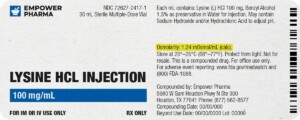
Given the vastness and uniqueness of individualized compounded formulations, it is impossible to list every potential compound we offer. To inquire if we currently carry or can compound your prescription, please fill out the form located on our Contact page or call us at (877) 562-8577.
We source all our medications and active pharmaceutical ingredients from FDA-registered suppliers and manufacturers.

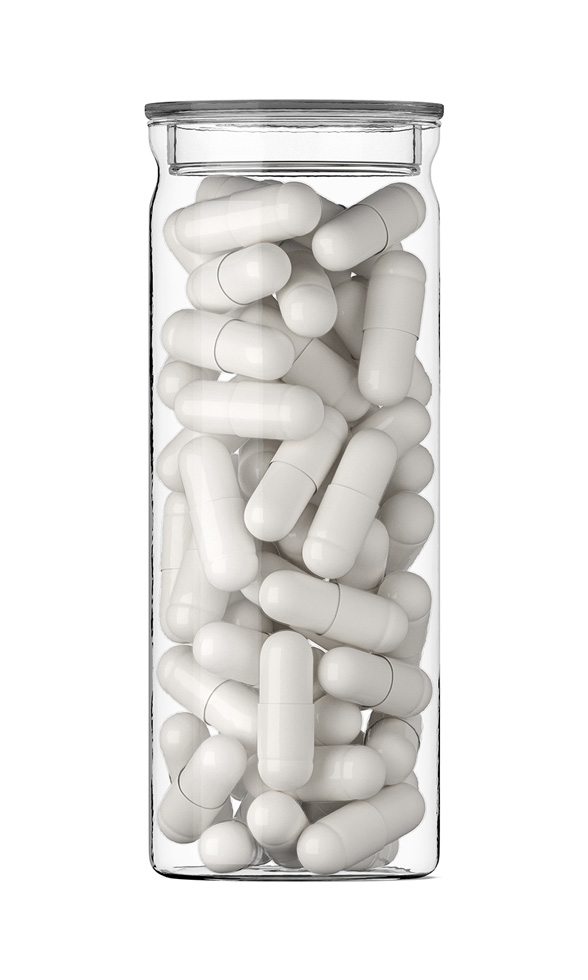
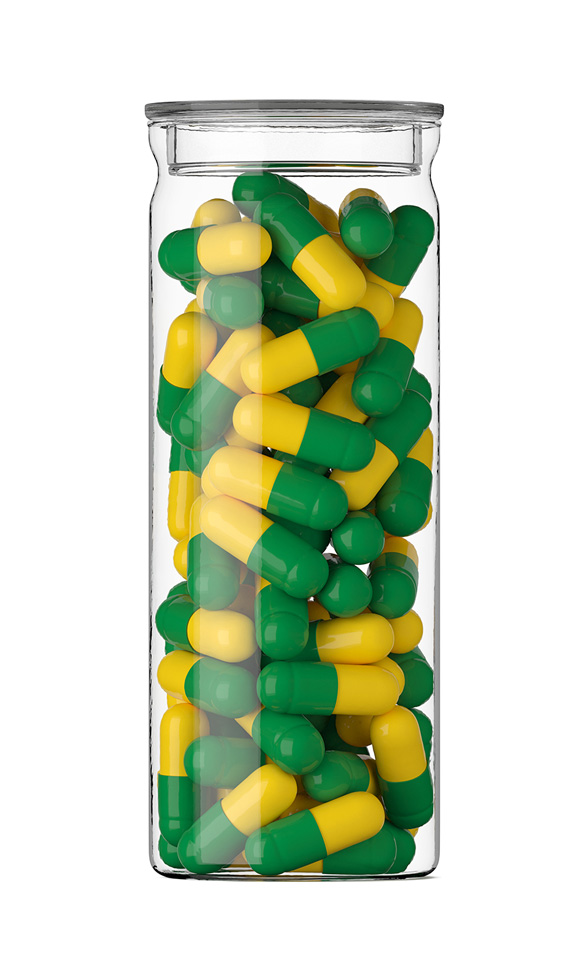 Bella Capsules
Bella Capsules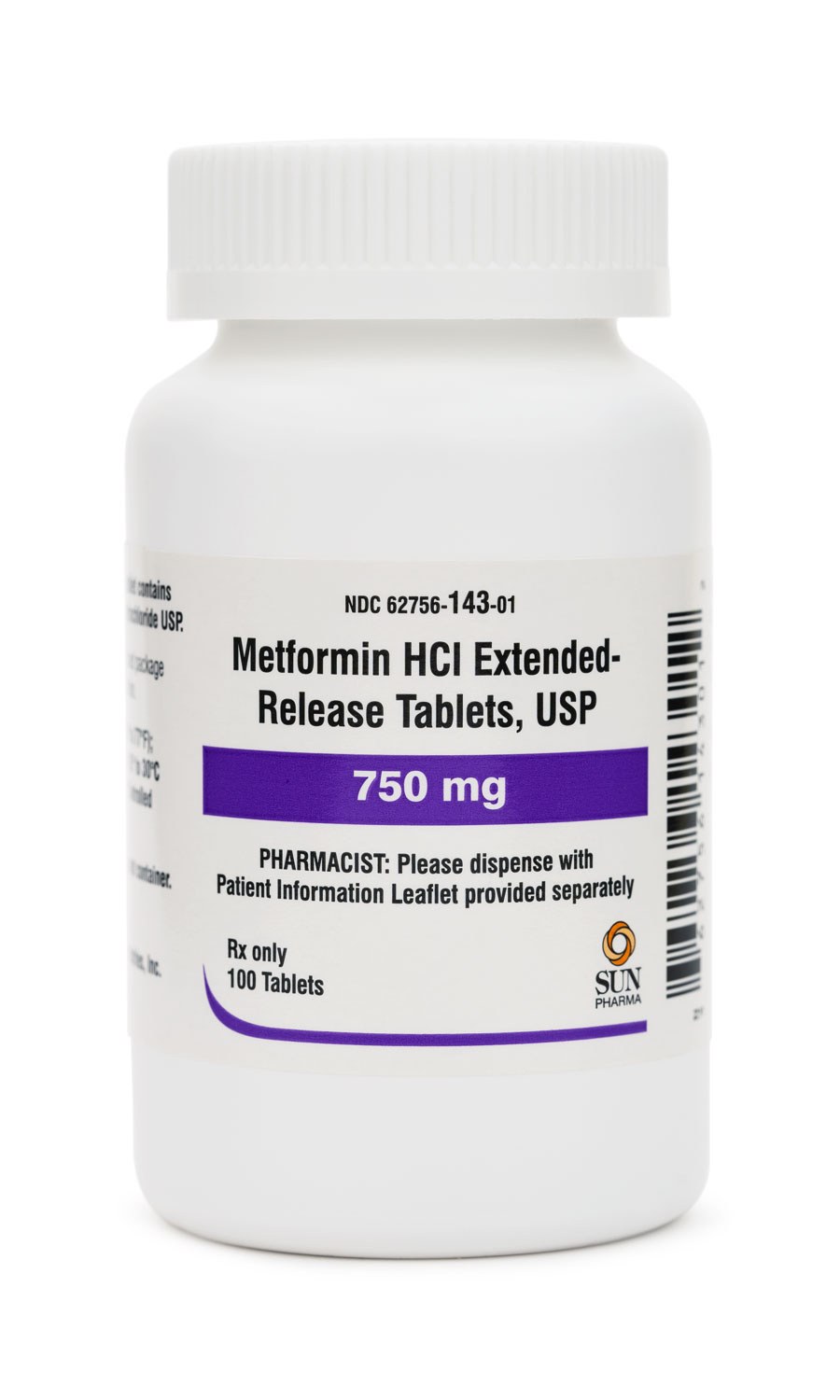 Metformin Tablets
Metformin Tablets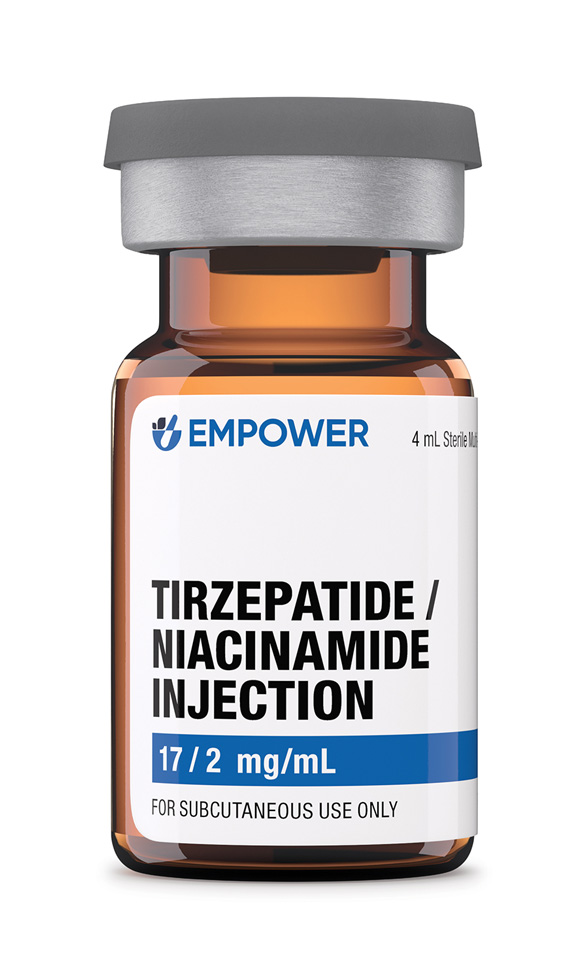 Tirzepatide / Niacinamide Injection
Tirzepatide / Niacinamide Injection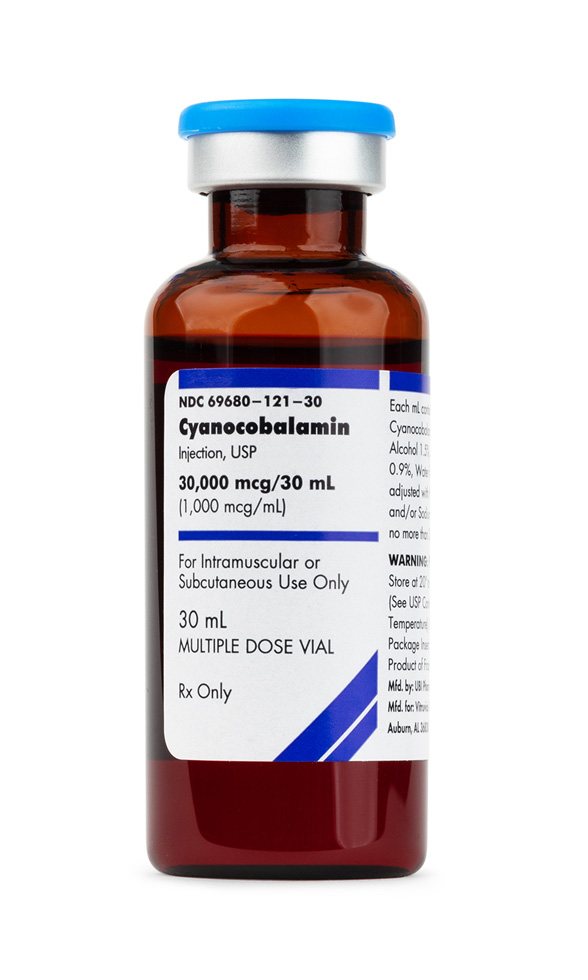 Cyanocobalamin (Vitamin B12) Injection
Cyanocobalamin (Vitamin B12) Injection Tirzepatide ODT
Tirzepatide ODT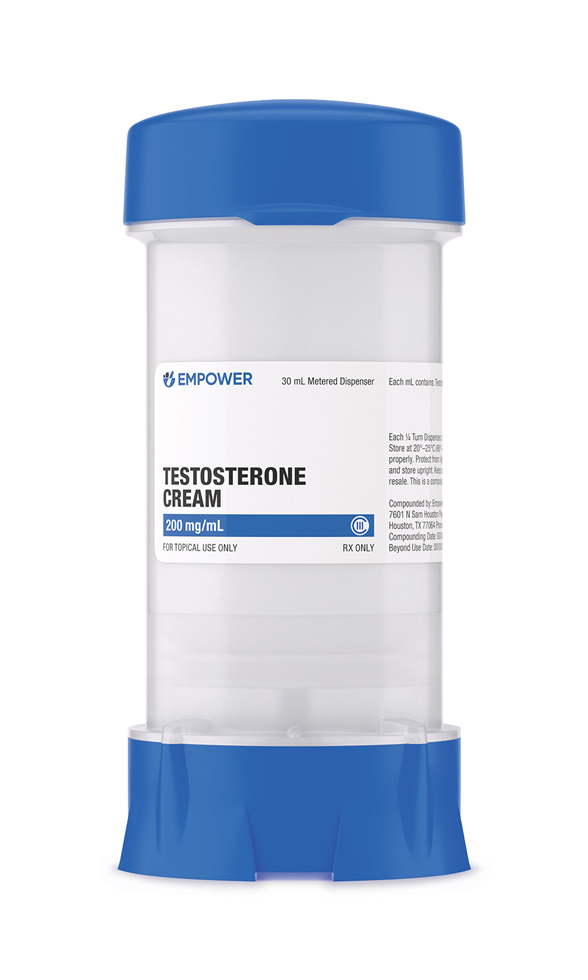 Testosterone Cream
Testosterone Cream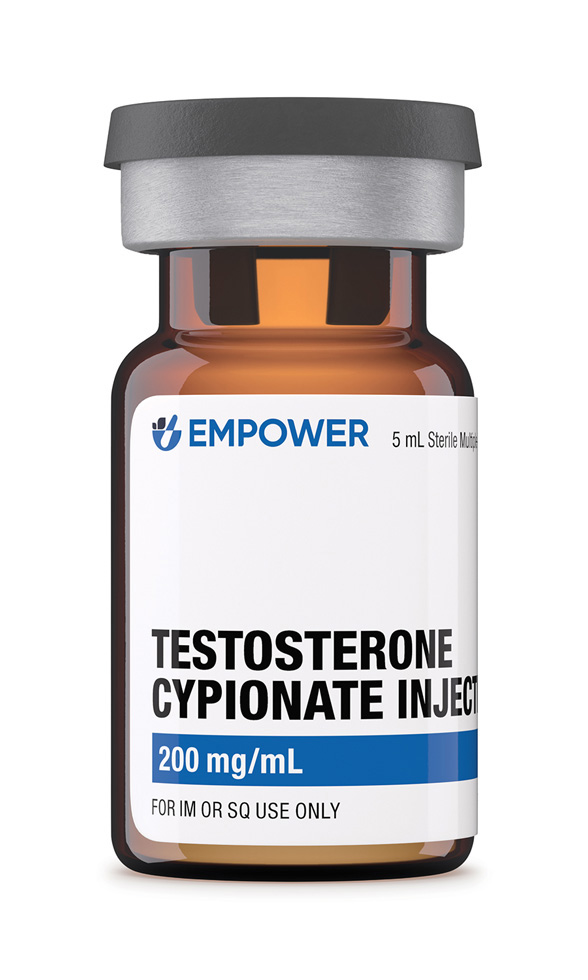 Testosterone Cypionate Injection
Testosterone Cypionate Injection